
0
+
Google Reviews

0
+
4.1(2019 Ratings)
This is fundamental course, which covers basic to intermediate as a part of our Linux course. Suitable for freshers OR people who would like to enter into Infra Management related Job.
Separate Advanced courses are available for Both AWS and Devops which goes 60 to 80 hours separately each technology


Curriculum Designed by Experts
RHCSA –
• Red Hat System Administration
1 (RH124)
• Red Hat System Administration
I (RH134)
RHCE –
• Red Hat System Administration
III: Linux Automation with
Ansible (RH294)
Total duration: 80 hrs of training (90% Practical & 10% Theory)
Red Hat System Administration I (RH124) –
Red Hat System Administration I provides a foundation for students wishing to become full-time
Linux system administrators by introducing key command line concepts and other enterprise-level tools. These concepts are further developed in the follow-on course, Red Hat System Administration II (RH134).
Prerequisites:
There are no formal prerequisites for this course; however, previous operating system administration experience will be very beneficial.
Get started with Red Hat
Enterprise Linux
Describe and define open source, Linux distributions, and Red Hat Enterprise Linux.
Access the command line
Log into a Linux system and run simple commands using the shell.
Manage files from the command line
Copy, move, create, delete, and organize files while working from the bash shell.
Get help in Red Hat Enterprise Linux
Resolve problems by using local help systems.
Create, view, and edit text files
Manage text files from command output or in a text editor.
Manage local users and groups
Create, manage, and delete local users and groups, as well as administer local password policies.
Control access to files
Set Linux file system permissions on files and interpret the security effects of different permission settings.
Monitor and manage Linux processes
Evaluate and control processes running on a Red Hat Enterprise
Linux system.
Control services and daemons
Control and monitor network services and system daemons using systemd
Configure and secure SSH
Configure secure command line service on remote systems, using OpenSSH.
Analyze and store logs
Locate and accurately interpret logs of system events for troubleshooting purposes.
Manage networking
Configure network interfaces and
000 O
settings on Red Hat Enterprise
Linux servers.
Archive and transfer files
Archive and copy files from one system to another.
Install and update software
Download, install, update, and manage software packages from Red Hat and yum package repositories.
Access Linux files systems
Access, inspect, and use existing file systems on storage attached to a Linux server.
Analyze servers and get support
Investigate and resolve issues in the web-based management interface, getting support from Red Hat to help solve problems.
Comprehensive review
Review the content covered in this course by completing hands-on exercises.
This course is intended to develop the skills needed for basic administration and configuration of Red Hat Enterprise Linux. This course introduces key command line concepts and enterprise-level tools, laying the foundation for the rapid deployment of Red Hat Enterprise Linux. The curriculum also introduces the basic administration skills needed for resolving configuration issues and integrating Red Hat Enterprise Linux systems with other existing environments.
This offering lays the foundation for secure user and group administration, and develops skills that allow administrators to use available storage solutions more efficiently and securely. This course is the first of a two-part series that turns a computer professional who knows nothing about Linux into a fully capable Linux administrator.
Red Hat has created this course in a way intended to benefit our customers, but each company and infrastructure is unique, and actual results or benefits may vary.
As a result of attending this course, you should be able to perform essential Linux administration tasks, including installation, establishing network connectivity, managing physical storage, and basic security administration.
You should be able to demonstrate these skills:
• Access the command line
• Manage files from command line
Create, view, and edit text files
Manage local users and groups
• Monitor and manage Linux processes
• Control services and daemons
• Control access to files with file system permissions
Analyze and store log files
• Configure and secure the
OpenSSH service
• Install and update software packages
Access Linux file systems
• Manage Linux networking
Recommended next exam or course:
Red Hat System Administration II (RH134) or Red Hat System Administration II with RHCSA exam (RH135)
The first of two courses covering the core system administration tasks needed to manage Red Hat
Enterprise Linux servers
Red Hat System Administration I (RH124) equips you with Linux® administration “survival skills” by focusing on foundational Linux concepts and core tasks. You will learn how to apply command-line concepts and enterprise-level tools, starting you on your journey toward becoming a full-time Linux system administrator.
This path continues with the follow-on course, Red Hat System Administration II (RH134).
This course is based on Red Hat®
Enterprise Linux 8.
Course content summary:
• Introduction to the command line
• Managing physical storage
• Install and configure software components and services
• Establish network connections and control firewall restrictions
• Monitor and manage running processes
• Manage and secure files and file systems
• Administer users and groups
Review the system log files and
journal for issues
• Troubleshoot problems and analyze systems with Red Hat
Insights
• Remotely manage systems with
SSH and the Web Console
Basic technical user skills with computer applications on some operating systems are expected.
System Administration II (RH134)
This module goes deeper into enterprise Linux administration including file systems and partitioning, logical volumes, SELinux, firewalling, and troubleshooting. Attending both
Red Hat System Administration land Red Hat System
Administration II can help you in your preparation for the Red Hat
Certified System Administrator exam (EX200).
Improve command line productivity
Run commands more efficiently by using advanced features of the bash shell, shell scripts, and various utilities provided by Red setting tuning parameters and adjusting scheduling priority of processes.
Control access to files with ALs
Interpret and set access control lists (ACLs) on files to handle situations requiring complex user and group access permissions.
Manage SELinux security
Protect and manage the security of a server by using SELinux.
Maintain basic storage
Create and manage storage devices, partitions, file systems, and swap spaces from the command line.
Manage logical volumes
Create and manage logical
Logical Volume Management
Hat Enterprise Linux.
Schedule future tasks
Schedule commands to run in the future, either one time or on a repeating schedule.
Tune system performance
Improve system performance by setting tuning parameters and adjusting scheduling priority of processes.
Control access to files with ALs
Interpret and set access control lists (ACLs) on files to handle situations requiring complex user and group access permissions.
Manage SELinux security
Protect and manage the security of a server by using SELinux.
Maintain basic storage
Create and manage storage devices, partitions, file systems, and swap spaces from the command line.
Manage logical volumes
Create and manage logicalvolumes containing file systems and swap spaces from the command line.
Implement advanced storage features
Manage storage using the Stratis local storage management system and use VDO volumes to optimize storage space in use.
Access network-attached storage
Use the NFS protocol to administer network-attached storage.
Control the boot process
Manage the boot process to control services offered and to troubleshoot and repair problems
Manage network security
Control network connections to services using the system firewall and SELinux rules.
Install Red Hat Enterprise Linux
Install Red Hat Enterprise Linux on servers and virtual machines.
Focuses on the key tasks needed to become a full-time Linux administrator
Red Hat System Administration
I (RH134) builds upon and lends context to the foundational knowledge established in Red
Hat System Administration I (RH124). This follow-on course demonstrates more detailed use
cases for Red Hat® Enterprise Linux®, preparing you for the Red Hat Certified System Administrator exam (EX200).
This course is based on Red Hat
Enterprise Linux 8.
Course content summary
• Install Red Hat Enterprise Linux using scalable methods
• Access security files, file systems, and networks
• Execute shell scripting and automation techniques
• Manage storage devices, logical volumes, and file systems
• Manage security and system access
• Control the boot process and system services
This course is geared toward
Windows system administrators, network administrators, and other system administrators who are interested in supplementing current skills or backstopping other team members, in addition to Linux system administrators who are responsible for these tasks:
• Configuring, installing, upgrading, and maintaining
Linux systems using established standards and procedures
Providing operational support
• Managing systems for monitoring system performance and availability
• Writing and deploying scripts for task automation and system administration
Prerequisite(s) for this course:
Successful completion of Red Hat
System Administration I (RH124) is recommended. Experienced Linux administrators seeking to accelerate their path toward becoming a Red Hat Certified System Administrator should start with the RHCSA Rapid Track course (RH199).
Course description:
Learn how to automate Linux system administration tasks with Ansible
Red Hat System Administration
II: Linux Automation with Ansible
(RH294 teaches the skills needed to manage large numbers of systems and applications efficiently and consistently. You will learn the techniques needed to use Ansible® to automate provisioning, configuration, application deployment, and orchestration.
This course is based on Red Hat®
Enterprise Linux® 8 and Red Hat
Ansible Engine 2.8.
Course Content Summary:
• Install Ansible / Red Hat Ansible
Engine on control nodes.
Create and update inventories of managed hosts and manage connections to them.
• Automate administration tasks with Ansible Playbooks and ad hoc commands.
• Write effective playbooks at scale
• Protect sensitive data used by
Ansible with Ansible Vault.
Reuse code and simplify playbook development with
Ansible roles.
Introduce Ansible
Describe
Deploy Ansible
Configure Ansible to manage hosts and run ad hoc Ansible commands.
Implement playbooks
Write a simple Ansible Playbook and run it to automate tasks on multiple managed hosts
Manage variables and facts
Write playbooks that use variables to simplify management of the playbook and facts to reference information about managed hosts.
Implement task control
Manage task control, handlers, and task errors in Ansible Playbooks
Deploy files to managed hosts
Deploy, manage, and adjust files on hosts managed by Ansible.
Manage large projects
Write playbooks that are optimized for larger, more
complex projects.
Simplify playbooks with roles
Use Ansible roles to develop playbooks more auickly and to reuse Ansible code.
Troubleshoot Ansible
Troubleshoot playbooks and managed hosts.
Automate Linux administration tasks
Automate common Linux system administration tasks with Ansible.
Impact on the organization
IT automation is key to managing large numbers of systems and applications efficiently and consistently at scale. This course develops the skills needed to efficiently operate and more easily scale the organization’s dynamic
IT infrastructure, accelerate application time to value, and rapidly adapt and implement needed innovation through
DevOps practices.
Red Hat has created this course in a way intended to benefit our customers, but each company and infrastructure is unique, and actual results or benefits may vary.
As a result of attending this course, you should be able to use Ansible for the purpose of automation, configuration, and management.
You should be able to demonstrate these skills:
• Install and configure Ansible or
Red Hat Ansible Engine on a contro node.
Create and manage inventories of managed hosts, as well as prepare them for Ansible automation.
• Run individual ad hoc automation tasks from the command line.
• Write Ansible Playbooks to consistently automate multiple tasks and apply them to managed hosts.
• Parameterize playbooks using variables and facts, and protect sensitive data with Ansible Vault.
• Write and reuse existing Ansible roles to simplify playbook creation and reuse code.
• Automate common Red
Hat Enterprise Linux system administration tasks using
Ansible.
Red Hat Certified Engineer (RHCE) exam on Red Hat Enterprise Linux 8 (EX294)
Advanced Automation: Ansible Best Practices (DO447)
Our Specialty:
• 100% Passing Records of RHEL 7
• Training By 16+ Years experienced Real Time Trainer
• 300+ Practical Sessions
• 100+ Scenarios and Assignments
• World class training methods
• Training until the candidate get placed
• Certification and Placement Support
• All training in reasonable cost
• 10000+ Satisfied candidates
• 5000+ Placement Records
• Corporate and Online Training in reasonable Cost
• Complete End-to-End Project with Each Course
• Data Center with Cisco UCS Servers
• World Class Lab Facility which facilitates 13 /15 /17 Servers
• Resume And Interview preparation with 100% Hands-on Practical sessions
• Doubt clearing sessions any time after the course
• Happy to help you any time after the course
• Definition and characteristics of cloud computing
• Cloud service models: laaS, PaaS, Saas
• Cloud deployment models: public, private, hybrid
• Benefits and challenges of cloud computing
• Cloud Infrastructure and Platforms
• Virtualization and containers
• Cloud providers and popular platforms (e.g., AWS, Azure, Google Cloud)
• Provisioning and managing cloud resources
•Networking and security in the cloud
• Application Development and Deployment in the Cloud
• Cloud-native application
• Containerization and orchestration (e.g., Docker, Kubernetes)
• Serverless computing
• Scalability and high availability
• Definition and principles of DevOps
• Collaboration and communication in DevOps teams
• Benefits of DevOps practices
• DevOps tools and technologies overview
• Continuous Integration and Delivery
• Version control systems (e.g., Git)
• Building and testing automation
• CI/CD pipelines
• Artifact management
• Infrastructure as Code
• Configuration management tools (e.g., Ansible, Chef, Puppet)
• Infrastructure provisioning and automation
• Infrastructure testing and versioning
• Infrastructure as Code best practices
• Monitoring and Logging
• Application performance monitoring
• Log aggregation and analysis
• Infrastructure and resource monitoring
• Alerting and incident response
• Security and Compliance in the Cloud
• Cloud security models and shared responsibility
• Identity and access management
• Security monitoring and auditing
• Compliance frameworks and best practices
• Cloud Migration and Hybrid Environments
• Strategies and considerations for migrating to the cloud
• Hybrid cloud architectures
• Cloud cost management and optimization
• Cloud vendor lock-in and interoperability
• Emerging Trends and Future of Cloud and DevOps
• Serverless computing and edge computing
• Al and machine learning in DevOps
• DevSecOps and security automation
• DevOps culture and organizational transformation
• Definition and characteristics of cloud computing
• Cloud service models: laaS,PaaS, Saas
• Cloud deployment models:public, private, hybrid
• Benefits and challenges of cloud computing
• Cloud Infrastructure and Platforms
• Virtualization and containers
• Cloud providers and popular platforms (e.g., AWS, Azure, Google Cloud)
• Provisioning and managing cloud resources
• Networking and security in the cloud
• Application Development and Deployment in the Cloud
• Cloud-native application development
• Containerization and orchestration (e.g., Docker, Kubernetes)
• Serverless computing
• Scalability and high availability
• Introduction to DevOps
• Definition and principles of DevOps
• Collaboration and communication in DevOps teams
• Benefits of DevOps practices
• DevOps tools and technologies overview
• Continuous Integration and Delivery
• Version control systems (e.g.,Git)
• Building and testing automation
• CI/CD pipelines
• Artifact management
• Infrastructure as Code
• Configuration management
• Infrastructure provisioning and automation
• Infrastructure testing and versioning
• Infrastructure as Code best practices
• Monitoring and Logging
• Application performance monitoring
• Log aggregation and analysis
• Infrastructure and resource monitoring
• Alerting and incident response
• Security and Compliance in the cloud
• Cloud security models and shared responsibility
• Identity and access management
• Security monitoring and auditing
• Compliance frameworks and best practices
• Cloud Migration and Hybrid Environments
• Strategies and considerations for migrating to the cloud
• Hybrid cloud architectures
• Cloud cost management and optimization
• Cloud vendor lock-in and interoperability
•Emerging Trends and Future of Cloud and DevOps
• Serverless computing and edge computing
• Al and machine learning in DevOps
• DevSecOps and security automation
• DevOps culture and organizational transformation
• Assessment Methods:
Introduction to Cloud Computing and AWS
• Definition and characteristics of cloud computing
• Overview of AWS and its global infrastructure
• AWS service categories and use cases
• AWS pricing and billing model
• AWS Identity and Access Management (IAM)
• AM concepts and components
• User and group management
• IAM policies and permissions
• Best practices for IAM security
• AWS Compute Services
• Amazon Elastic Compute Cloud (EC2)
• EC2 instance types and pricing options
• Auto Scaling and Elastic Load Balancing (ELB)
• Serverless computing with AWS Lambda
• AWS Storage Services
• Amazon Simple Storage Service (S3)
• S3 storage classes and features
• Amazon Elastic Block Store (EBS)
• AWS Glacier and Storage Gateway
• AWS Database Services
• Amazon Relational Database Service (RDS)
• RDS database engines (MySQL,PostgreSQL, Oracle, SQL Server)
• Amazon DynamoDB
• Amazon Redshift and Aurora
• AWS Networking Services
• Amazon Virtual Private Cloud (VPC)
• Subnets, security groups, and network ACLs
• VPC peering and VPN connections
• AWS Direct Connect
• AWS Management and Monitoring
• AWS Management Console and Command Line Interface (CLI)
• AWS CloudFormation
• AWS CloudWatch for monitoring and logging
• AWS Trusted Advisor and AWS Config
• AWS Security and Compliance
• AWS shared responsibility model
• Security groups and network access control
• AWS Web Application Firewall(WAF)
• Encryption services (S3, EBS,RDS)
• AWS Application Services
• Amazon Simple Queue Service (SOS)
• Amazon Simple Notification Service (SNS)
• Amazon Simple Workflow Service (SWF)
• Amazon Simple Email Service (SES)
• AWS Deployment and Management
• AWS Elastic Beanstalk
• AWS OpsWorks
• AWS CloudFormation for infrastructure as code
• Continuous integration and deployment with AWS CodePipeline
Introduction to DevOps
• Definition and principles of DevOps
• Benefits of DevOps practices
• DevOps culture and collaboration
• DevOps and Agile methodologies
• Continuous Integration and Delivery
• Version control systems (e.g., Git)
• Building and testing automation
• CI/CD pipelines
• Artifact management
• Infrastructure as Code
• Configuration management tools (e.g., Ansible, Chef, Puppet)
• Infrastructure provisioning and automation
• Infrastructure testing and versioning
• Infrastructure as Code best practices
• Continuous Deployment and Release Management
• Release pipelines and deployment strategies
• Automated deployment tools (e.g., Jenkins, Bamboo)
• Environment management and configuration
• Rollbacks and monitoring during deployment
• Monitoring and Logging
• Application performance monitoring
• Log aggregation and analysis
• Infrastructure and resource monitoring
• Alerting and incident response
• Collaboration and Communication Tools
• Version control collaboration (e.g., GitLab, GitHub)
• Communication and collaboration platforms (e.g., Slack, Microsoft Teams)
• Issue tracking and project management tools (e.g., Jira, Trello)
• DevOps for Cloud Environments
• Cloud computing and DevOps
• Infrastructure automation in the cloud
• Scalability and elasticity considerations
• Cloud-native application development
• Security and Compliance in DevOps
• DevSecOps principles and practices
• Security testing and vulnerability scanning
• Compliance frameworks and considerations
• Secrets management and access control
• Performance Optimisation and Scalability
• Performance testing and optimisation techniques
• Horizontal and vertical scaling
• Load balancing and auto- scaling
• Caching and content delivery networks (CDNs)
• Continuous Improvement and DevOps Culture
• DevOps feedback loops and metrics
• Post-implementation reviews and retrospectives
• Continuous learning and knowledge sharing
• DevOps adoption and organizational change management
Master in-demand skills with the INDUSTRY LINUX CLOUD DEVOPS course training! Gain expertise in Linux, cloud platforms, and DevOps tools to meet industry needs. This training enhances your career opportunities in IT and cloud computing. Enroll now for comprehensive learning and stay ahead with INDUSTRY LINUX CLOUD DEVOPS course training!
Unlock exciting career opportunities with the INDUSTRY LINUX CLOUD DEVOPS course training! Equip yourself with skills in Linux, cloud technologies, and DevOps practices to excel in high-demand IT roles. Enroll now in INDUSTRY LINUX CLOUD DEVOPS course training and build a future-ready career in the tech industry!
Embrace cloud adoption with the INDUSTRY LINUX CLOUD DEVOPS course training! Learn Linux, cloud platforms, and DevOps to drive seamless cloud integration and management. Stay competitive in the evolving tech landscape by enrolling in INDUSTRY LINUX CLOUD DEVOPS course training and mastering essential cloud adoption skills!
Achieve unmatched scalability and flexibility with the INDUSTRY LINUX CLOUD DEVOPS course training! Master Linux, cloud solutions, and DevOps practices to build adaptive IT infrastructures. Enroll in INDUSTRY LINUX CLOUD DEVOPS course training to excel in creating scalable and flexible cloud-based solutions for modern businesses!
Optimize IT expenses with the INDUSTRY LINUX CLOUD DEVOPS course training! Gain expertise in cost-efficient Linux, cloud, and DevOps strategies to manage resources effectively. Enroll in INDUSTRY LINUX CLOUD DEVOPS course training and become proficient in cost management while driving innovation in cloud computing and DevOps environments!
Enhance security and compliance expertise with the INDUSTRY LINUX CLOUD DEVOPS course training! Learn to implement robust security protocols and adhere to industry compliance standards. Enroll in INDUSTRY LINUX CLOUD DEVOPS course training to safeguard systems and excel in creating secure, compliant cloud and DevOps solutions!
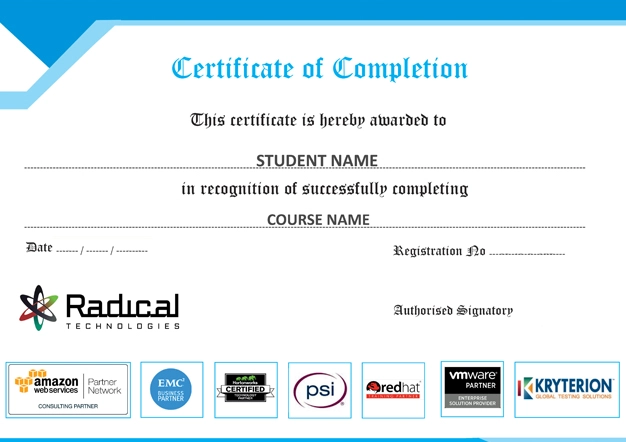


At Radical Technologies, we are committed to your success beyond the classroom. Our 100% Job Assistance program ensures that you are not only equipped with industry-relevant skills but also guided through the job placement process. With personalized resume building, interview preparation, and access to our extensive network of hiring partners, we help you take the next step confidently into your IT career. Join us and let your journey to a successful future begin with the right support.
At Radical Technologies, we ensure you’re ready to shine in any interview. Our comprehensive Interview Preparation program includes mock interviews, expert feedback, and tailored coaching sessions to build your confidence. Learn how to effectively communicate your skills, handle technical questions, and make a lasting impression on potential employers. With our guidance, you’ll walk into your interviews prepared and poised for success.
At Radical Technologies, we believe that a strong professional profile is key to standing out in the competitive IT industry. Our Profile Building services are designed to highlight your unique skills and experiences, crafting a resume and LinkedIn profile that resonate with employers. From tailored advice on showcasing your strengths to tips on optimizing your online presence, we provide the tools you need to make a lasting impression. Let us help you build a profile that opens doors to your dream career.

Infrastructure Provisioning
Implementing automated infrastructure provisioning and configuration management using Ansible. This may include setting up servers, networking devices, and other infrastructure components using playbooks and roles.

Applications Deployment
Automating the deployment and orchestration of applications across development, testing, and production environments. This could involve deploying web servers, databases. middleware, and other application components using Ansible

Continuous Integration
Integrating Ansible into CI/CD pipelines to automate software. build, test, and deployment processes. This may include automating the creation of build artifacts, running tests, and deploying applications to various environments.

The Industry Linux + Cloud & DevOps Course in Bengaluru offered by Radical Technologies was an eye-opener. The hands-on training sessions helped me gain practical knowledge.
I highly recommend Radical Technologies for anyone looking for Industry Linux + Cloud & DevOps Certification in Bengaluru. The trainers are experts and ensure every concept is well-understood.
Joining the Industry Linux + Cloud & DevOps Classes in Bengaluru was the best decision for my career. The structured approach and real-time project experience were incredibly helpful.
The Industry Linux + Cloud & DevOps Institute in Bengaluru at Radical Technologies has an exceptional curriculum that bridges the gap between theory and practice.
Radical Technologies provided excellent Industry Linux + Cloud & DevOps Training in Bengaluru. The practical labs and case studies made the learning process seamless.
The Industry Linux + Cloud & DevOps Corporate Training in Bengaluru from Radical Technologies helped our team implement best practices efficiently.
The Industry Linux + Cloud & DevOps Online Classes in Bengaluru were well-organized, with detailed explanations and real-world examples that made complex topics easy to grasp.
I completed the Industry Linux + Cloud & DevOps Online Course in Bengaluru at Radical Technologies and was amazed by the depth of content and personalized support.
The Industry Linux + Cloud & DevOps Online Training in Bengaluru exceeded my expectations. The interactive sessions and hands-on labs boosted my confidence.
Radical Technologies’ Industry Linux + Cloud & DevOps Online Certification in Bengaluru is the perfect choice for professionals looking to upgrade their skills remotely.
I loved the flexibility of the Industry Linux + Cloud & DevOps Online Classes in Bengaluru. The trainers ensured I could keep up despite my busy schedule.
The Industry Linux + Cloud & DevOps Institute in Bengaluru provided me with real-world projects that enhanced my practical knowledge and job readiness.
Radical Technologies’ Industry Linux + Cloud & DevOps Corporate Training in Bengaluru helped my organization adopt DevOps practices effectively.
The instructors for the Industry Linux + Cloud & DevOps Online Course in Bengaluru are industry experts who share invaluable insights during the sessions.
The Industry Linux + Cloud & DevOps Online Certification in Bengaluru by Radical Technologies is recognized by leading companies, which helped me secure a new role.
The Industry Linux + Cloud & DevOps Classes in Bengaluru include hands-on labs and projects, which made the learning experience truly engaging and practical.
The trainers at Radical Technologies make the Industry Linux + Cloud & DevOps Training in Bengaluru easy to understand, even for beginners.
I’m grateful to Radical Technologies for their exceptional Industry Linux + Cloud & DevOps Corporate Training in Bengaluru, which helped me and my colleagues upskill quickly.
The Industry Linux + Cloud & DevOps Online Training in Bengaluru was highly interactive, with trainers resolving doubts in real-time.
Radical Technologies’ Industry Linux + Cloud & DevOps Online Certification in Bengaluru added great value to my resume and career growth.
The Industry Linux + Cloud & DevOps Institute in Bengaluru provides an excellent learning environment with supportive trainers and advanced tools.
The Industry Linux + Cloud & DevOps Online Classes in Bengaluru at Radical Technologies are well-structured, with excellent support for queries and doubts.
The trainers at Radical Technologies are incredibly knowledgeable, making the Industry Linux + Cloud & DevOps Training in Bengaluru a fantastic experience.
I gained practical insights and industry knowledge through the Industry Linux + Cloud & DevOps Online Course in Bengaluru, which helped me excel in my role.
Radical Technologies’ Industry Linux + Cloud & DevOps Classes in Bengaluru focus on real-world scenarios, ensuring students are job-ready upon completion.








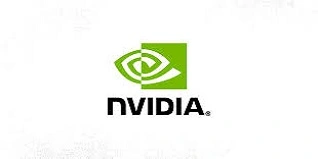


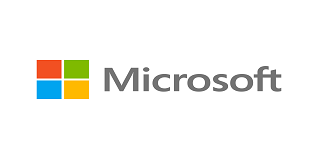
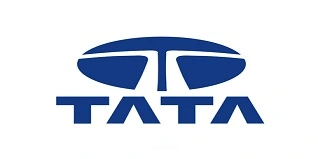

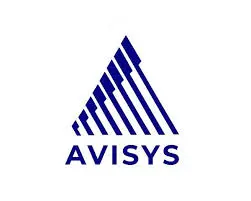




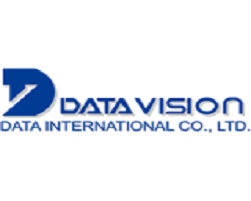
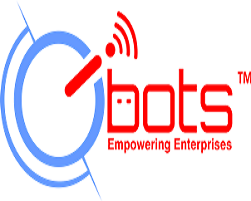
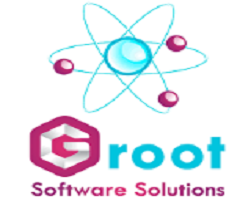
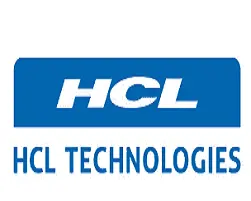
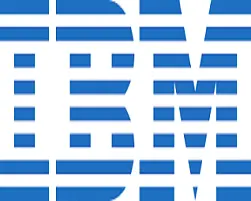
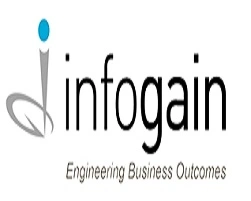
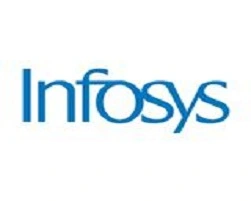
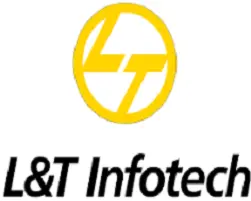
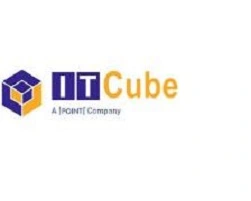
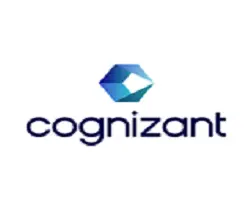
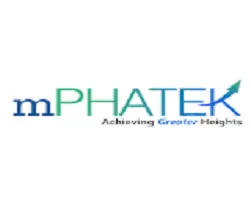
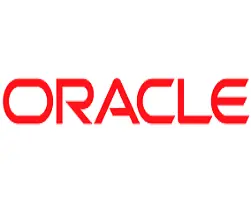

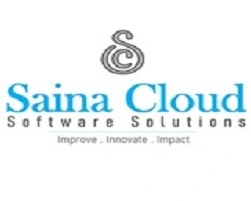




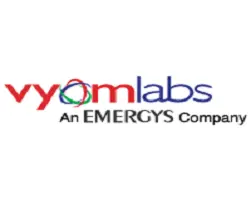
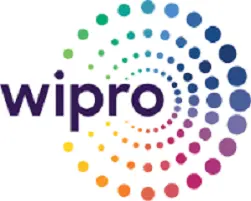
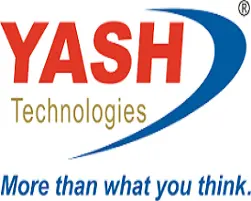
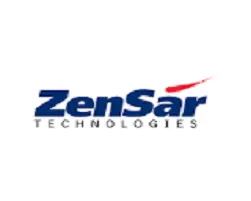
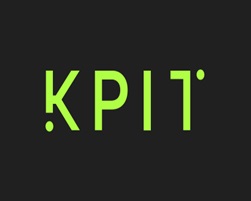
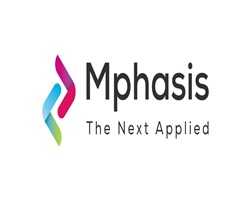
Linux is the foundation for many cloud platforms and DevOps tools. Its open-source nature, stability, security, and compatibility make it ideal for building, deploying, and managing scalable applications.
Linux offers lightweight environments, native support for containerization technologies, and robust kernel features like namespaces and cgroups, which are essential for running containers efficiently.
DevOps practices like CI/CD, Infrastructure as Code (IaC), and automated deployments are seamlessly integrated with Linux-based cloud infrastructures, enabling faster development, testing, and production cycles.
Linux provides flexibility, high performance, and compatibility with multiple cloud platforms, making it ideal for hybrid cloud setups. It allows industries to deploy workloads across public and private clouds seamlessly.
Linux serves as the backbone for automation tools like Ansible, Puppet, and Chef. These tools, often built for Linux, simplify configuration management, application deployment, and infrastructure provisioning.
Yes, Linux offers robust security features such as SELinux and iptables, which enhance the protection of DevOps pipelines and cloud resources against vulnerabilities and threats.
Linux is optimized for distributed environments, enabling cloud platforms to scale resources dynamically. It also supports tools like Kubernetes for managing large-scale containerized applications.
Many DevOps tools, including Jenkins, Git, Docker, Kubernetes, and Prometheus, are either natively built for or highly optimized to run on Linux environments.
While not mandatory, Linux’s interoperability and compatibility with multiple cloud platforms make it the preferred OS for multi-cloud environments, ensuring flexibility and efficiency.
Challenges include managing compatibility across platforms, security concerns, and skill gaps. These can be addressed through comprehensive training, adopting best practices, and leveraging managed services.
Linux enhances CI/CD pipelines by providing a stable, secure, and efficient environment for running automation tools, managing dependencies, and deploying applications to the cloud.
Industries such as finance, healthcare, e-commerce, manufacturing, and IT services benefit greatly due to the need for scalability, security, and automation in their operations.
Linux powers many edge devices and IoT platforms, providing a lightweight and reliable OS that integrates seamlessly with DevOps pipelines for updates and monitoring.
Yes, Linux’s open-source nature eliminates licensing costs, and its resource efficiency helps industries optimize infrastructure costs in cloud environments.
The future is promising as Linux continues to be the preferred OS for emerging technologies like serverless computing, AI/ML, and edge computing, which are integral to cloud and DevOps ecosystems.
Basavanagudi | HSR Layout | Sadashivanagar | Jayanagar | Koramangala | Whitefield | Banashankari | Marathahalli | BTM Layout | Electronic City | Rajajinagar | Domlur | Indiranagar | Malleshwaram | Yelahanka | Cooke Town | Nagarbhavi | Bannerghatta Road | Chandapura | Dasarahalli | Devanahalli | Anandnagar | Avenue Road | Byatarayanapura
I had an amazing experience with this service. The team was incredibly supportive and attentive to my needs. The quality of the work exceeded my expectations. I would highly recommend this to anyone looking for reliable and professional service."
I had an amazing experience with this service. The team was incredibly supportive and attentive to my needs. The quality of the work exceeded my expectations. I would highly recommend this to anyone looking for reliable and professional service."
I had an amazing experience with this service. The team was incredibly supportive and attentive to my needs. The quality of the work exceeded my expectations. I would highly recommend this to anyone looking for reliable and professional service."
I had an amazing experience with this service. The team was incredibly supportive and attentive to my needs. The quality of the work exceeded my expectations. I would highly recommend this to anyone looking for reliable and professional service."
I had an amazing experience with this service. The team was incredibly supportive and attentive to my needs. The quality of the work exceeded my expectations. I would highly recommend this to anyone looking for reliable and professional service."
The integration of Linux, Cloud Computing, and DevOps is redefining how industries manage and scale their IT infrastructure. This powerful combination offers organizations the flexibility, reliability, and speed required to meet modern business challenges.
Linux has emerged as a cornerstone of enterprise IT due to its:
With its adaptability and scalability, Linux forms the backbone of many cloud platforms and DevOps pipelines.
Cloud Computing provides industries with:
Cloud platforms like AWS, Azure, and Google Cloud offer native support for Linux-based applications, reinforcing their compatibility and efficiency.
DevOps, a methodology that merges development and operations, enhances collaboration and accelerates delivery cycles. Its principles—Continuous Integration (CI), Continuous Delivery (CD), and Infrastructure as Code (IaC)—are tightly coupled with Linux and Cloud technologies:
The convergence of Linux, Cloud Computing, and DevOps has become a transformative force across various industries. These technologies provide a robust, scalable, and flexible ecosystem for businesses to streamline operations and improve productivity. Below are the key applications across multiple sectors:
Automation and Orchestration
Linux serves as the foundation for numerous DevOps tools like Ansible, Puppet, and Chef, enabling industries to automate repetitive tasks. Coupled with cloud platforms, these tools allow seamless deployment, configuration, and scaling of applications.
Example: Automated server provisioning and patch management in IT operations.
2. Containerization and Microservices
Linux-based containerization technologies like Docker and Kubernetes empower industries to develop and deploy microservices-based architectures. This ensures faster application delivery and scalability.
Example: E-commerce platforms using Kubernetes to handle traffic spikes during peak sales seasons.
3. Continuous Integration and Continuous Delivery (CI/CD)
DevOps practices such as CI/CD, running on Linux and integrated with cloud services, enhance software development workflows. This accelerates application updates and ensures minimal downtime.
Example: Media streaming services deploying new features and fixes without interrupting user experience.
4. Hybrid and Multi-Cloud Solutions
Linux’s flexibility makes it ideal for deploying applications across hybrid and multi-cloud environments. Industries use this setup for cost optimization and to prevent vendor lock-in.
Example: Manufacturing companies running ERP systems on hybrid cloud environments for scalability and reliability.
5. Data Management and Analytics
The combination of Linux, cloud platforms, and DevOps pipelines facilitates efficient data storage, processing, and real-time analytics. This is crucial for industries dealing with massive datasets.
Example: Financial institutions analyzing transaction data to detect fraud and generate insights.
6. Disaster Recovery and Business Continuity
Linux’s stability, coupled with cloud backup and recovery solutions, ensures robust disaster recovery mechanisms. DevOps practices enable quick restoration of services in case of system failures.
Example: Healthcare systems leveraging cloud-based Linux servers for secure patient data recovery after outages.
7. Edge Computing and IoT
Linux powers many IoT devices and edge computing platforms, while cloud and DevOps tools ensure these devices are managed and updated efficiently.
Example: Smart city projects deploying IoT sensors powered by Linux to monitor energy consumption.
8. Security and Compliance
Linux’s inherent security features, combined with cloud compliance tools and DevOps security practices, help industries maintain regulatory compliance and protect sensitive data.
Example: Banks implementing secure DevOps pipelines to safeguard customer data and ensure compliance with global standards.
9. AI/ML Model Deployment
Cloud platforms integrated with Linux-based DevOps pipelines are used for deploying and managing AI/ML models efficiently, ensuring rapid scaling and real-time processing.
Example: Retail companies using AI-powered recommendation engines hosted on Linux servers.
10. Remote Work and Collaboration
The trio enables businesses to support remote work environments through cloud-hosted Linux servers and DevOps-driven collaborative tools.
Example: Software development teams using cloud-based Linux environments for version control and deployment.
Radical Technologies is the premier Industry Linux + Cloud & DevOps Institute in Bengaluru, offering top-notch training designed to prepare professionals for the demands of the IT industry. With a legacy of excellence in skill development, we specialize in delivering comprehensive Industry Linux + Cloud & DevOps Classes in Bengaluru, tailored to suit learners of all levels.
Our expert trainers bring years of hands-on industry experience to the classroom, ensuring that students gain practical knowledge alongside theoretical understanding. Whether you are looking for a career upgrade or a deeper dive into this evolving field, our Industry Linux + Cloud & DevOps Course in Bengaluru is your gateway to success.
We provide a variety of learning options, including Industry Linux + Cloud & DevOps Online Classes in Bengaluru, enabling learners to upgrade their skills from the comfort of their homes. For working professionals and organizations, our Industry Linux + Cloud & DevOps Corporate Training in Bengaluru is designed to deliver customized learning solutions that align with business objectives.
Our training programs emphasize hands-on experience, with real-world projects and case studies forming the core of the curriculum. As part of our commitment to excellence, we also offer industry-recognized Industry Linux + Cloud & DevOps Certification in Bengaluru, enhancing your credentials and employability.
At Radical Technologies, we understand the need for flexibility in today’s fast-paced world. That’s why our Industry Linux + Cloud & DevOps Online Training in Bengaluru and Industry Linux + Cloud & DevOps Online Course in Bengaluru provide interactive, instructor-led sessions designed for learners across different time zones. Additionally, our Industry Linux + Cloud & DevOps Online Certification in Bengaluru ensures that students are well-prepared to meet industry standards and excel in their careers.
Join Radical Technologies today to experience the best-in-class Industry Linux + Cloud & DevOps Training in Bengaluru and become a sought-after professional in this high-demand domain. Let us help you achieve your career aspirations with our cutting-edge training programs and unparalleled industry exposure.


(Our Team will call you to discuss the Fees)


(Our Team will call you to discuss the Fees)